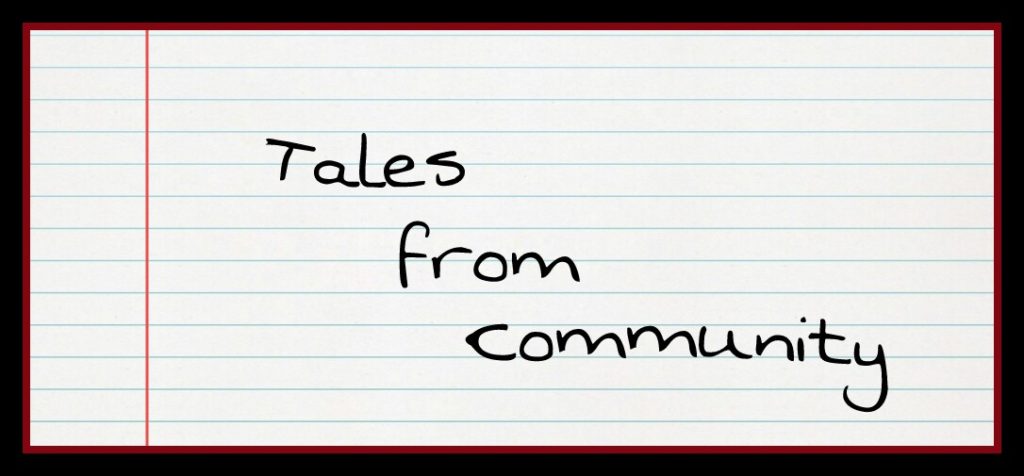Community team members, including moderators, and managers, usually operate within a larger structure. Teams might consist of several people with interrelated responsibilities, or sometimes just one. With multiple members, you have to make sure your teamwork is balanced enough to ensure that each member can take on different roles if needed. Having flexibility to compensate if it’s necessary is one mark of a strong team.
It reminds me of what my mother always taught me about egg cartons. When you remove eggs from a carton, you must remove them in such a way that the remaining weight is distributed with balance, otherwise the carton will tip over when you grab it, potentially leading to a mess if it falls. People aren’t eggs, but the comparison holds. Community, especially in a modern sense, is often a 24/7 experience. In an always-on field, you have to cover your bases and make sure to address the most pressing needs. In other words, your team, organization, and approach have to all be flexible enough to provide the balance you need to get the job done in line with your goals, but also be responsive. Too little coverage on one side, and your approach is unbalanced, possibly leading to a crash. Too little on one side might mean too much on another – so you have to be flexible in how you align your resources with regular checks against needs. Balance is not a static formula. You’ll have to use data and listen to feedback in order to come to the correct balance for the month, quarter, or year you’re focused on. Again, flexibility is necessary, especially when it comes to, as they say, putting out fires.
Services, apps, games, forums –wherever your community is centered–these can usually be accessed at any time. If you have a service and no one is minding the community, things can happen. For the most part, things tend to be a positive experience, but sometimes people can start taking it out on the community manager if a situation arises and there is no statement about it that the community deems helpful or valuable. Your words count when a troublesome moment happens, and having a good team can really take the sting out of an incident. That’s what we’re here for. One thing you have to do is truly love people. Because you’ll have to figure out how to address your community in the most reassuring manner that still takes care of business. You have to be able to triage what’s going on and then respond to what is happening. If you have a team working with you, this can be easier, but even small teams or single CMs have to deal with these.
Most people who have spent time in community have likely faced 1 or 2 in the morning while being summoned due to an incident. You’ll have to forego sleep for the next couple of hours, roll up your sleeves, and work on keeping communication channels open on both company and community ends to work through it.
In the beginning, one forum I worked for did not have great community tools, especially at the moderator level, where I started. The ability to bulk close post reports was missing, and I didn’t know how much we needed that until we got overrun by spammers or, occasionally, a community member who decided that it was time to flame out in a blaze of spam, swearing, and inappropriate posts. They can get pretty nasty. Those members who would do the absolute worst they could think of doing until we would be forced to ban them were very fond of saving their tirades for the wee hours of the morning, when we lacked sufficient coverage.
We had to look at each post report and close them individually, a process that took time. If someone made a concerted effort to get themselves banned from the site, and that effort resulted in 120 reports, that guy’s reports would have to be looked at, handled, deleted, and closed individually. You can probably understand that each report requiring individual attention meant this did not take five minutes to clear up. Meanwhile, with one person on duty, the site was nigh unusable with all of the nasty content. If the CM or an administrator were unavailable to bulk delete a member’s posts, it would be up to the moderator to delete everything manually, then close all of the reports individually, posting a justification of the decision in each closed report. Meanwhile, people would often post questions as to why there was no apparent moderator action happening. I started closing the most affected threads and posting a quick update in the inevitable thread someone would post with regards to the problem posts or spam spree.
That update would be something along the lines of:
Hey everyone,
I am temporarily closing some threads while we get the remaining problem posts cleaned up. Since we have to address and close every single post report individually, this takes some time to do. I’d appreciate it if you don’t report any more posts by johnusername5 since we are aware of the problem and are working on getting everything back in order. I’ll post again when I reopen this.
Thanks!
You have to use your best judgment to decide what material to remove first, because there are degrees to this. If it’s outright abusive, contains personal information, threats, or pornographic material, those are priority removals. Then, you filter the rest.
People would wonder if we were taking action at all.
“Where are the mods?” was not an uncommon question in the beginning. “How come no one is doing anything?” (We were, but they didn’t see it. Something had to change. Keep it visible.)
I began explaining in posts that we had to look at and take action on each report individually, and this took up a lot of time, but we were actively working on it. This helped soothe complaints and sometimes inspired some community members to defend our pace. Saying something in prominent posts made it known that we were actively working on the situation and gradually, things would return to normal. We had our members’ trust.
By working to remove the posts that most needed removal, and blending that with periodic communication with our community members (both in update posts and sometimes in responses to PMs sent directly to us), this tended to be effective in managing an average situation. Teamwork is important in reacting to situations as well as predicting situations. Though sometimes the best solution is as open an approach as you can manage. Update people, reassure them, and demonstrate that your community members matter. Sometimes you’ll still get impatient and occasionally irate feedback, but most will be understanding, with some leading in defense of you (and your team) when things get difficult.
Community team members have to be tuned in, to like people, and to believe in what they’re doing, otherwise it comes through and leads to burnout. Eventually, you get to know your members and how they communicate, and you can develop expectations. By doing so, you learn to anticipate their needs and then what works and what doesn’t work. It’s another way to provide that sense of balance. When all of your team members are tuned in, they can act with responsiveness and flexibility, even if everyone’s particular niche varies and you need a few extra hands to pitch in at a given moment.
Eventually, we got better moderation tools from our administrators. These included better spam filters, the ability to delete all user posts (an option previously limited to CM and administrators) and to bulk close all reports about the same user. If someone tried the old trick of spamming 150 times, we could delete all the spambot posts in one go, then close all associated reports just as fast. Something that might have taken an hour or more now took about three minutes.


